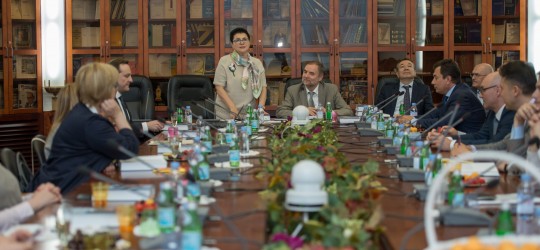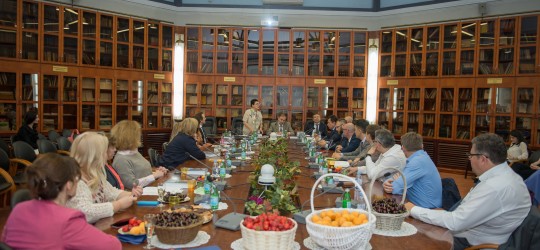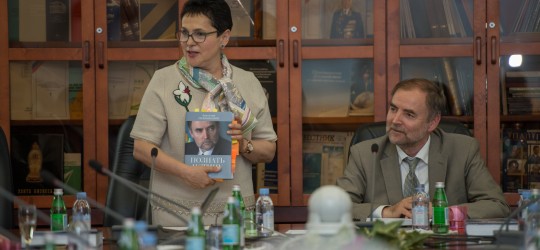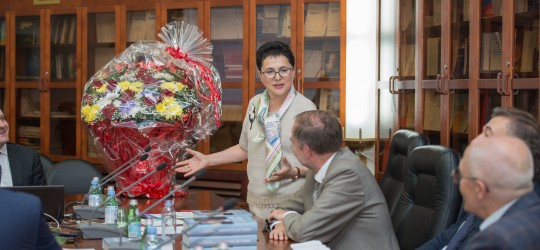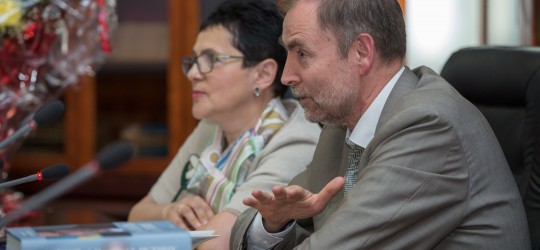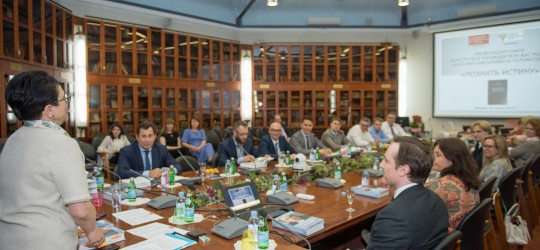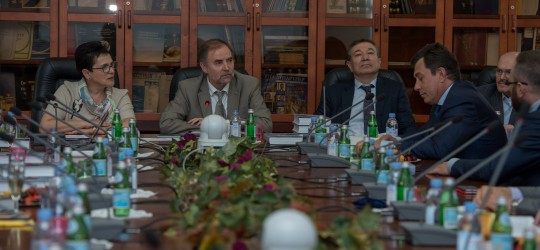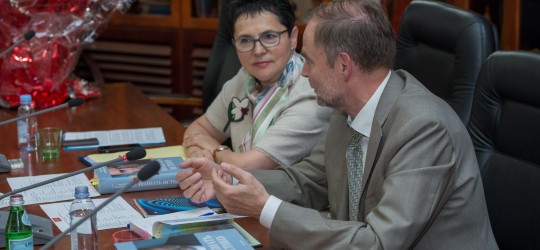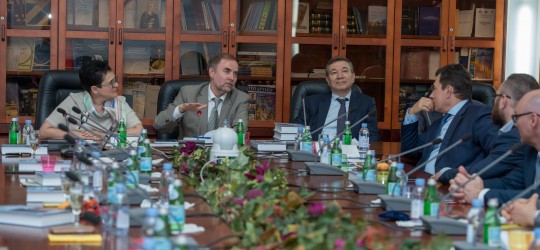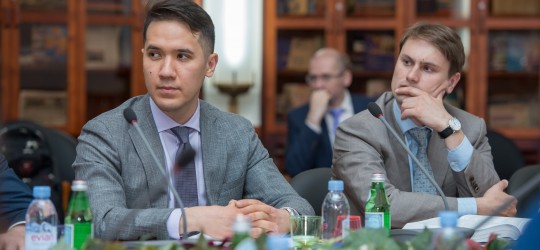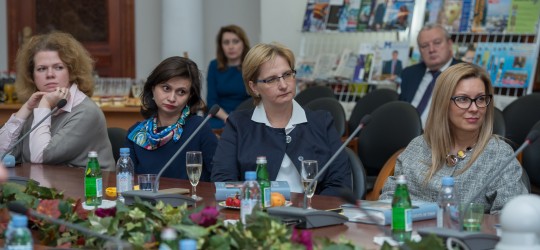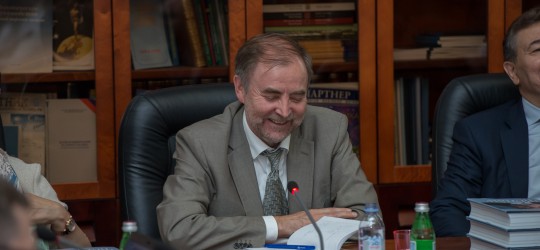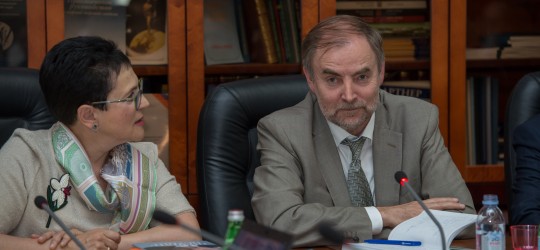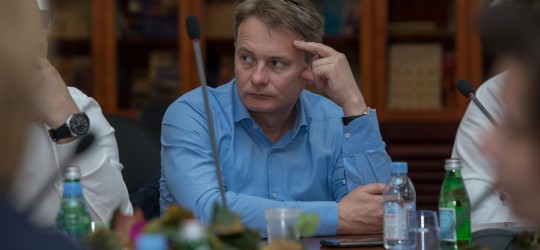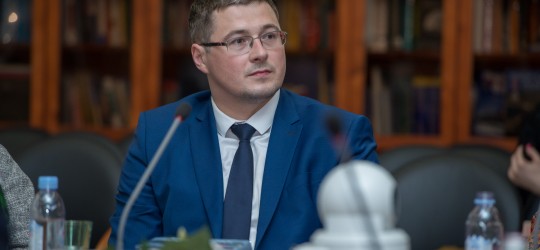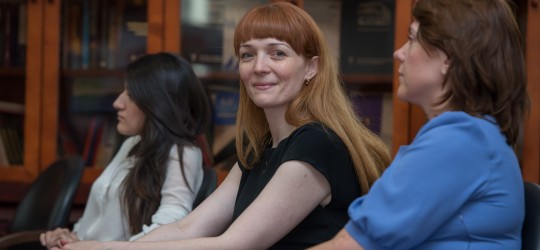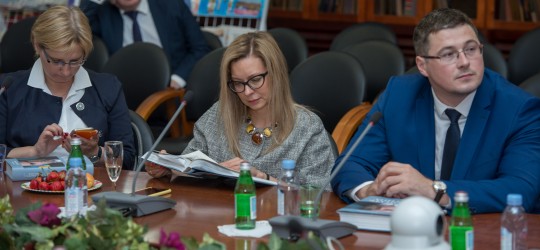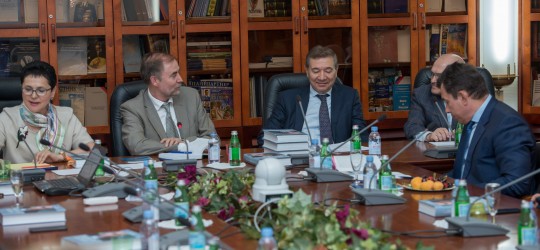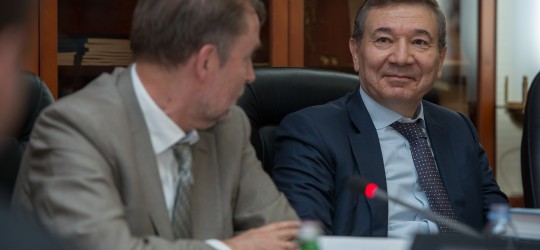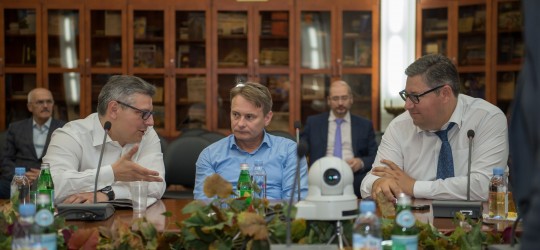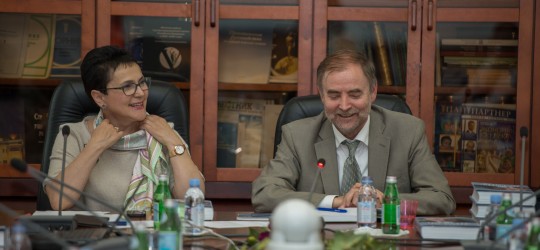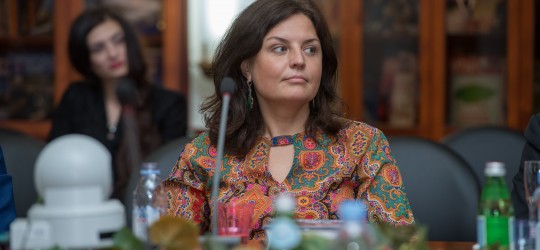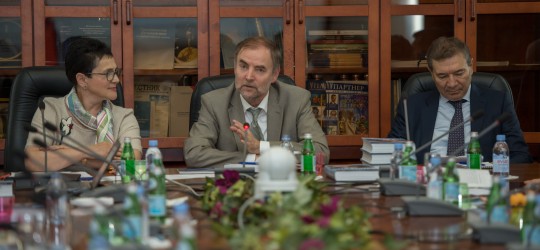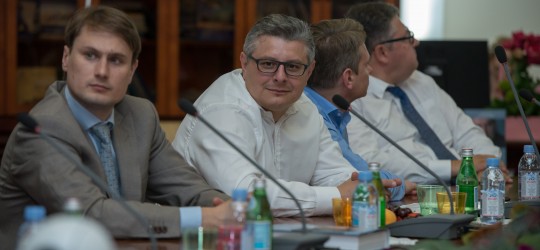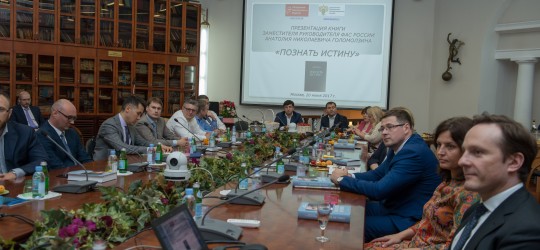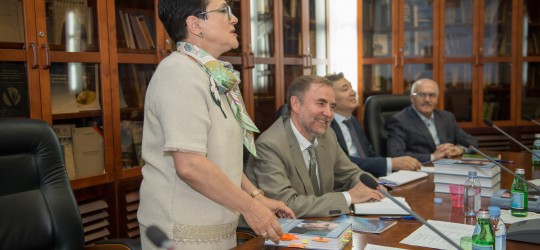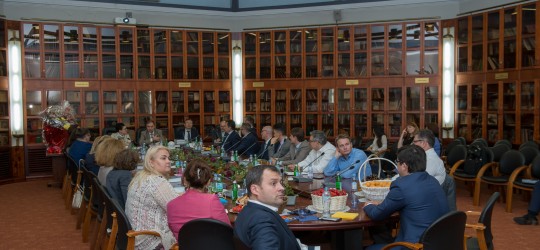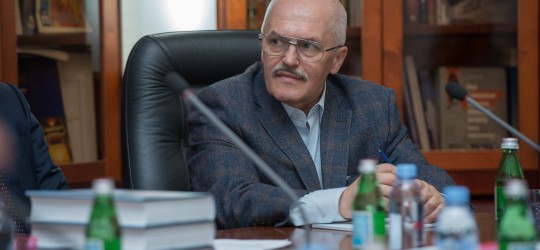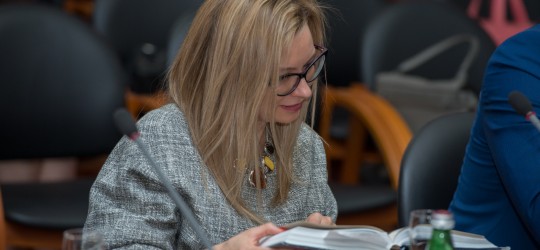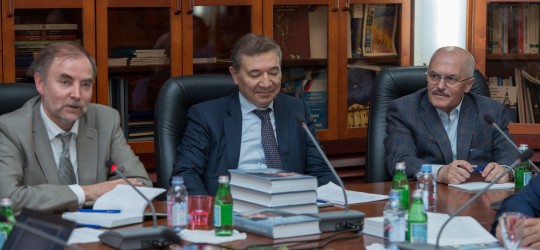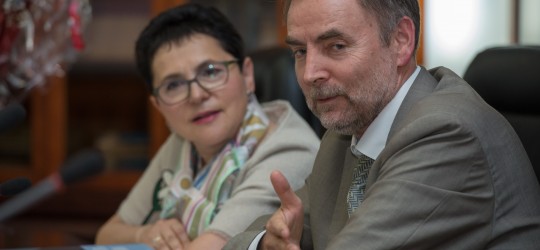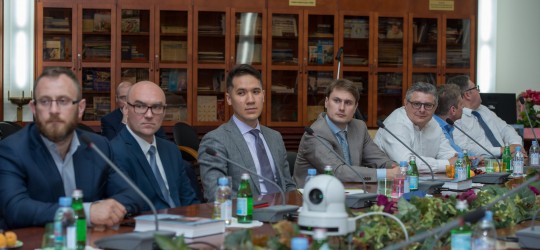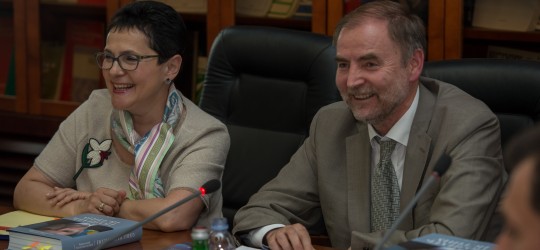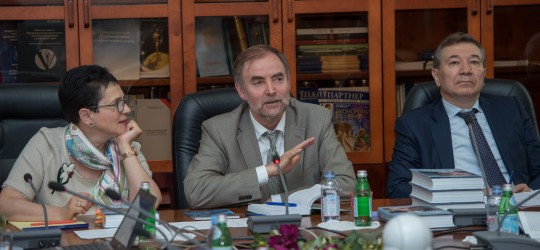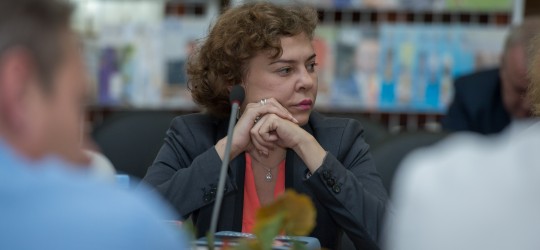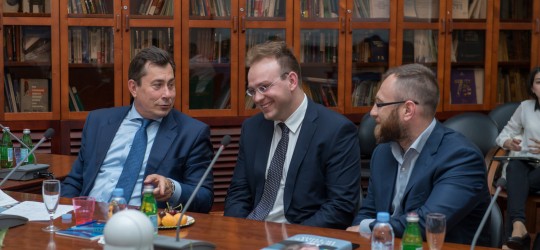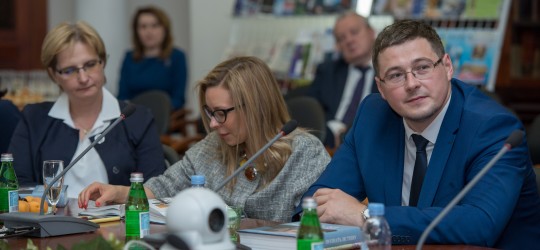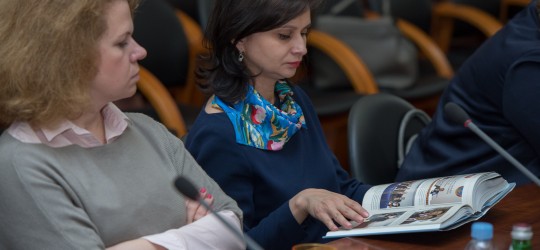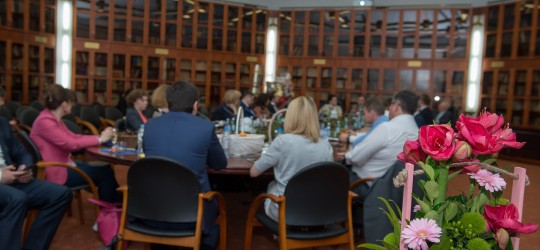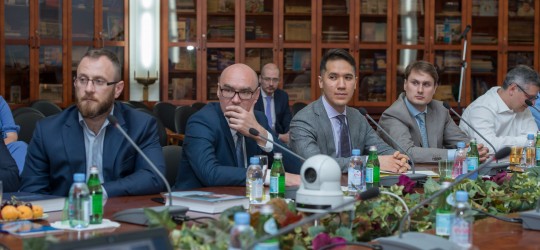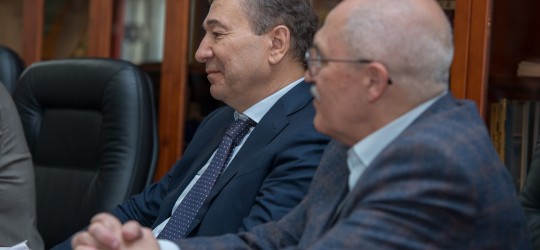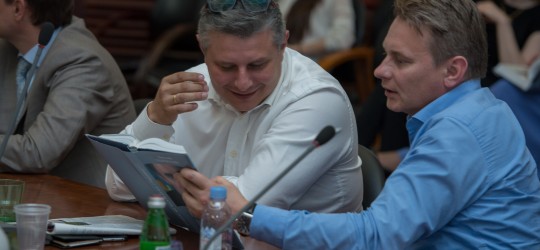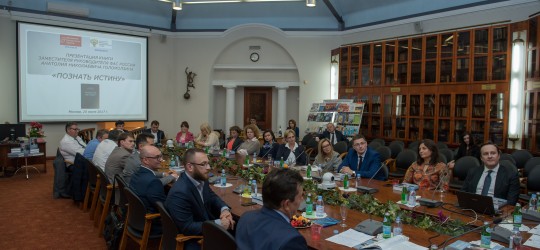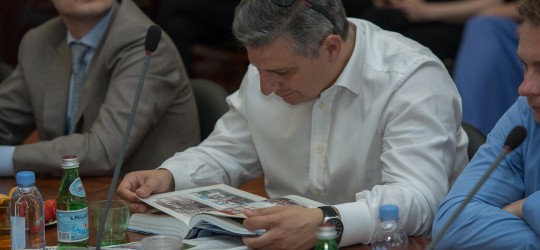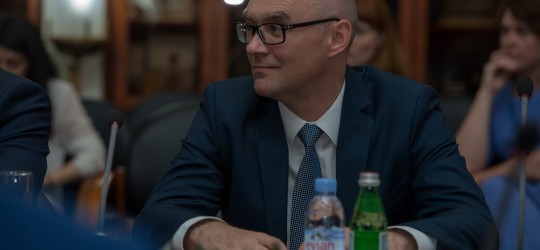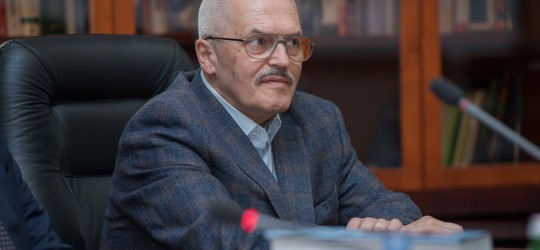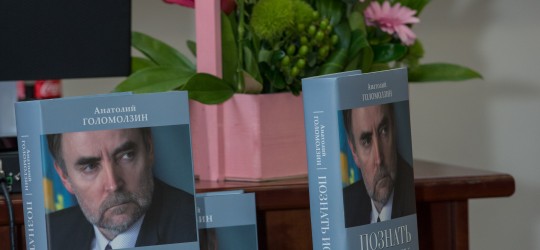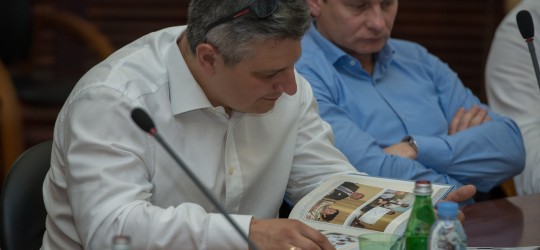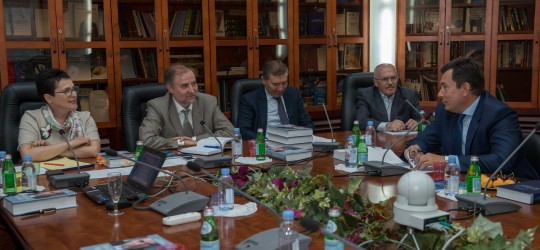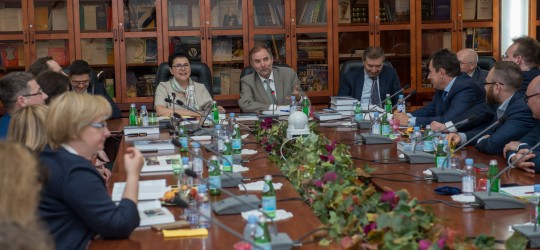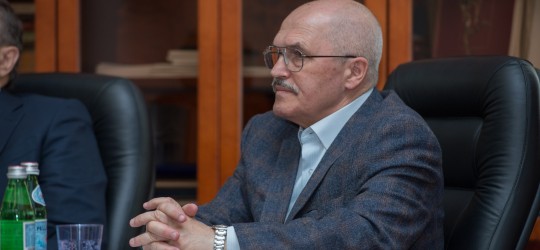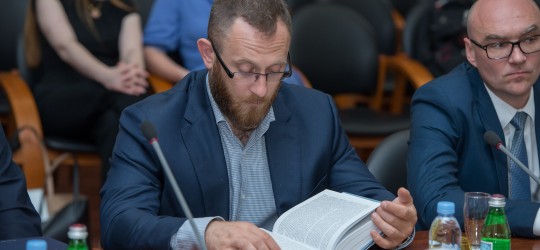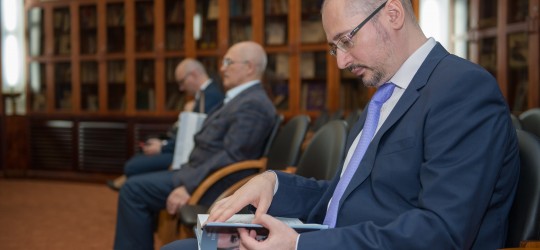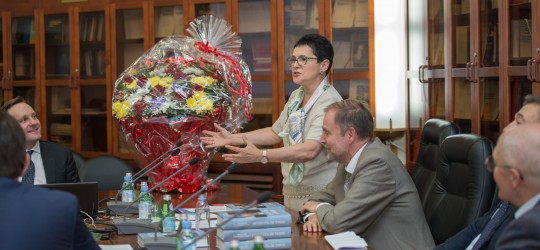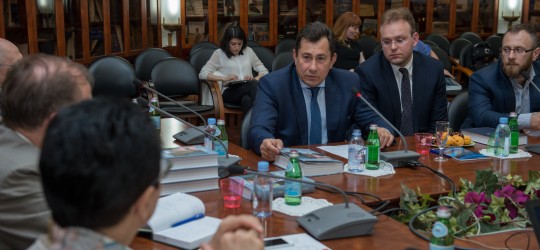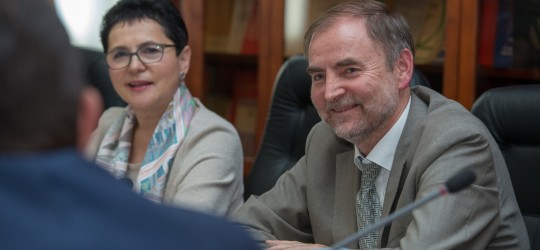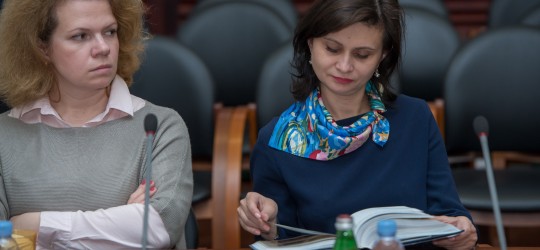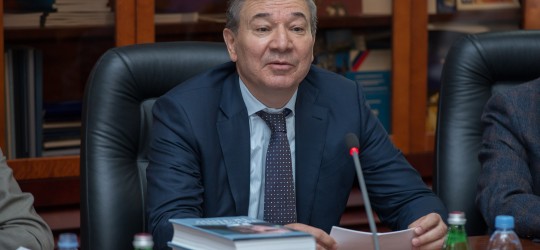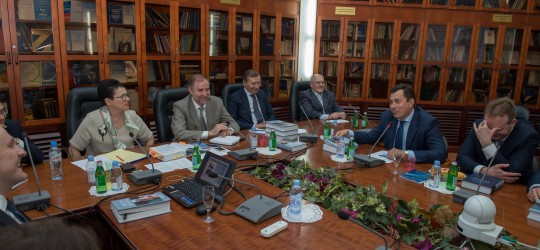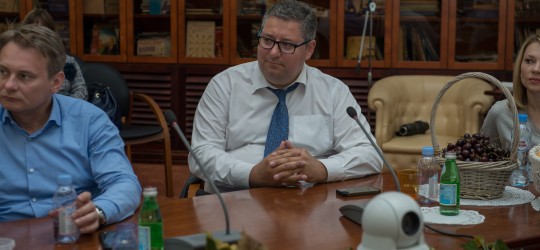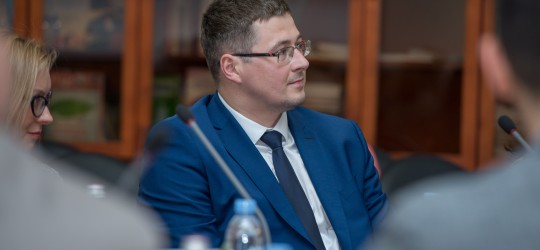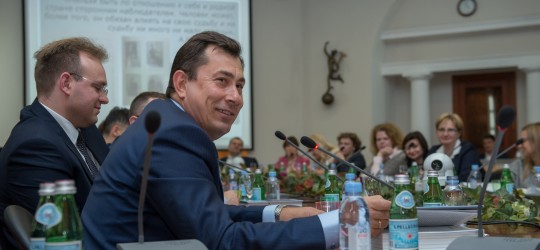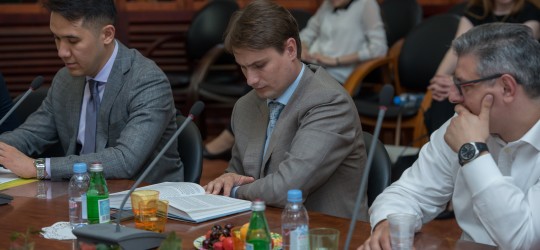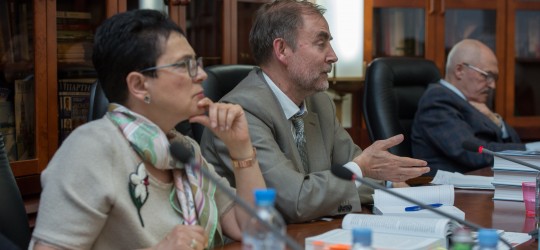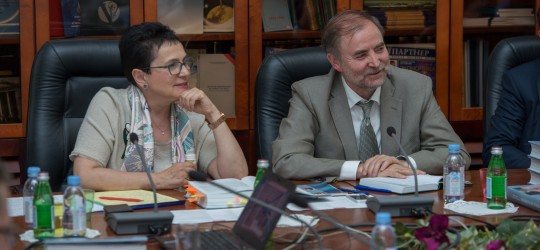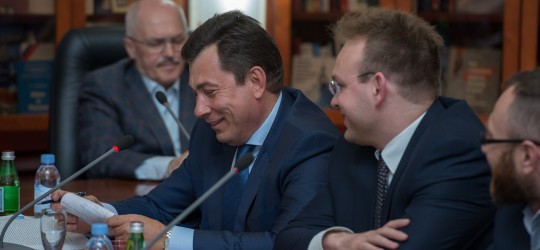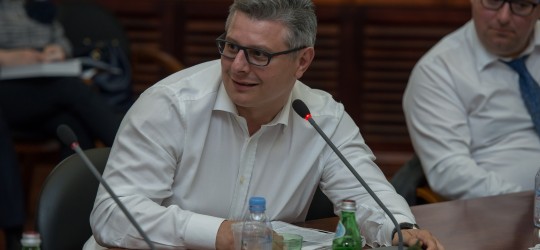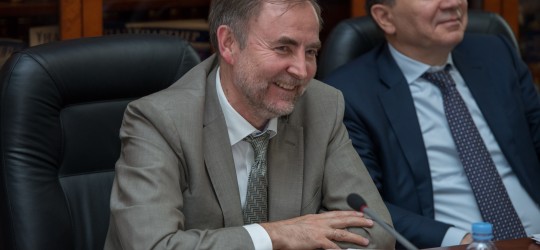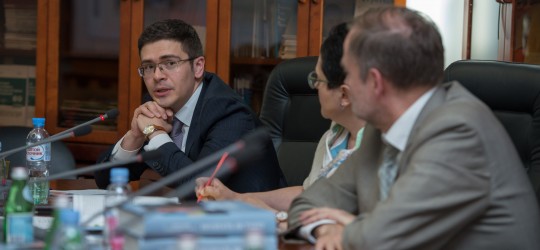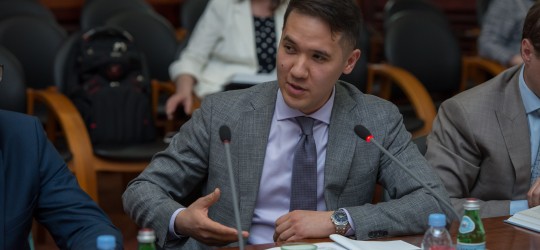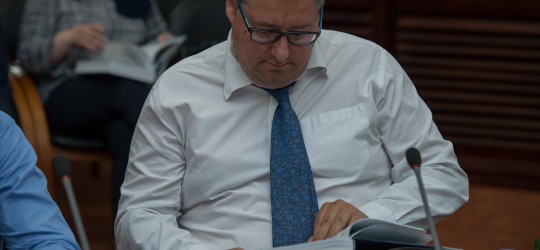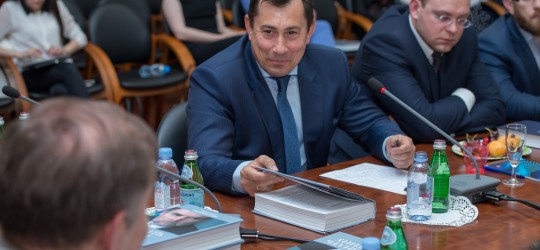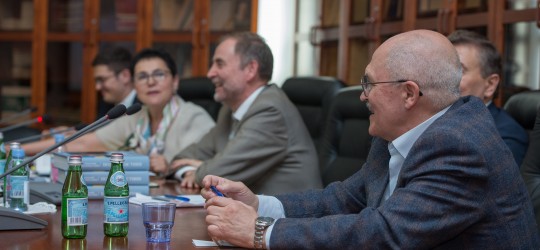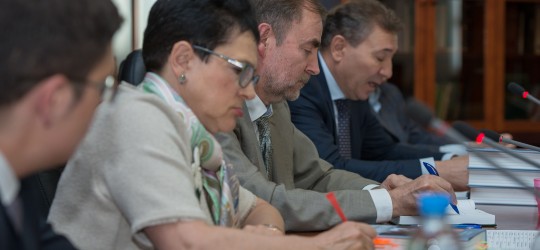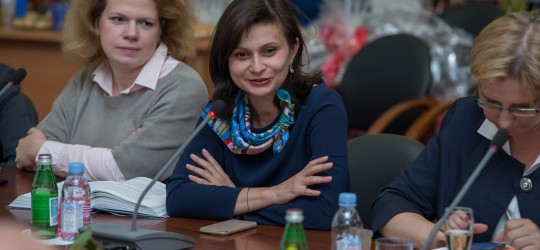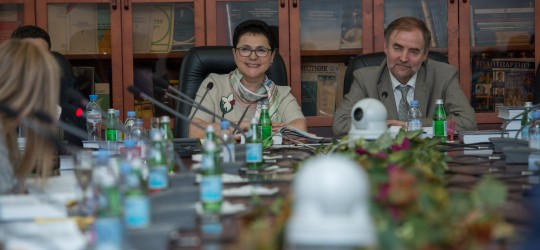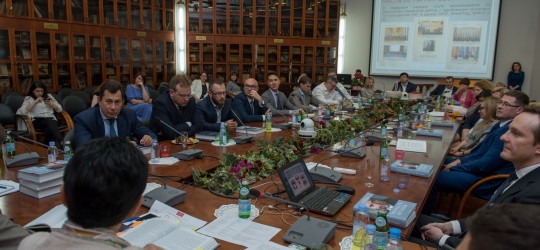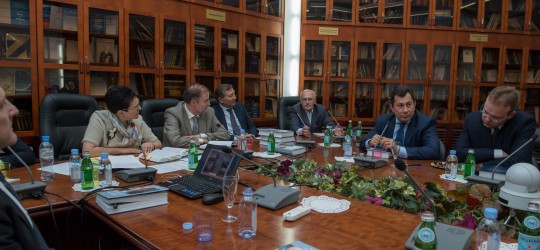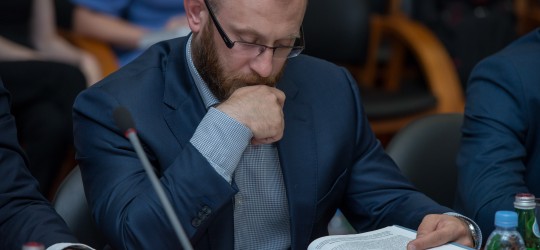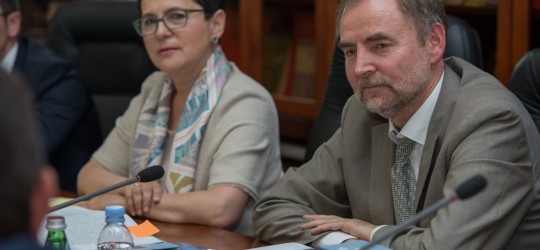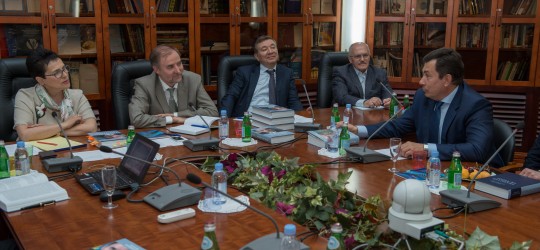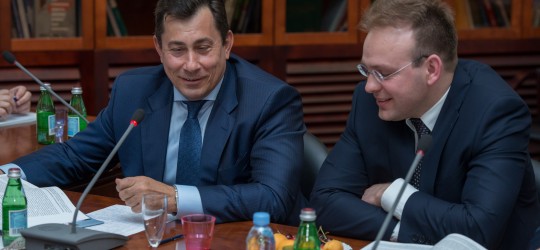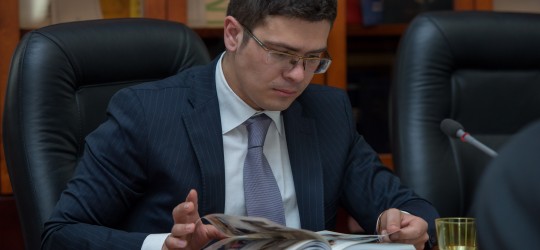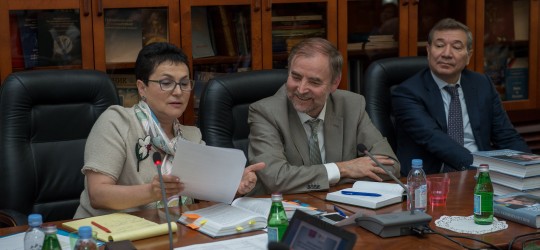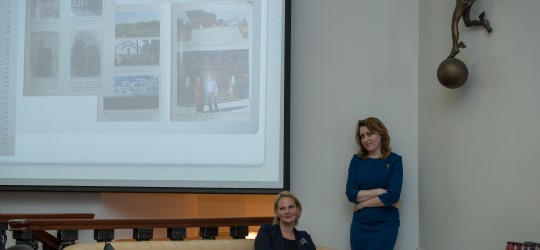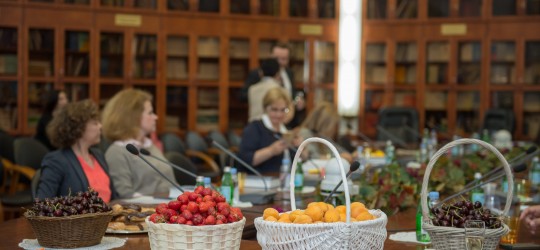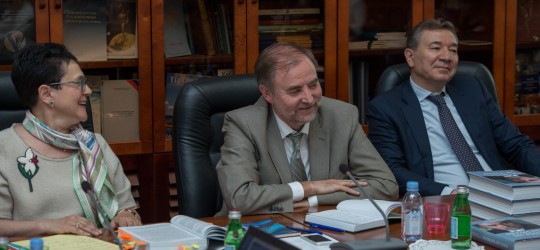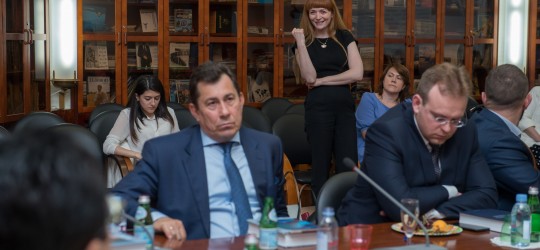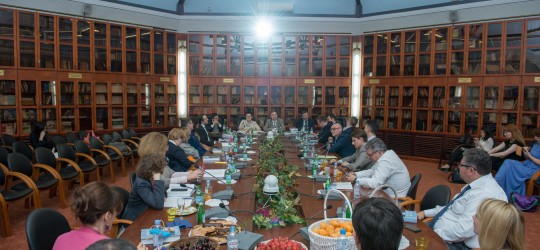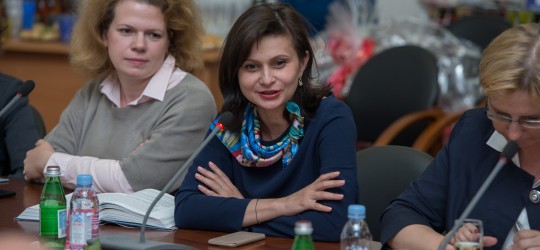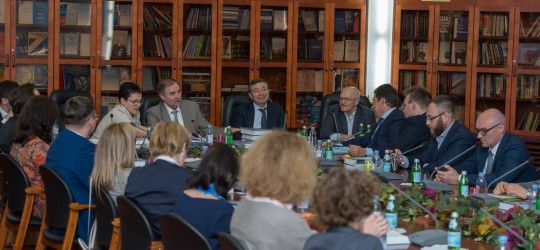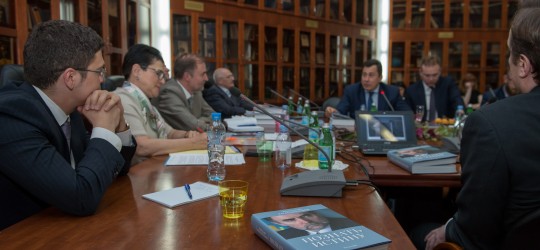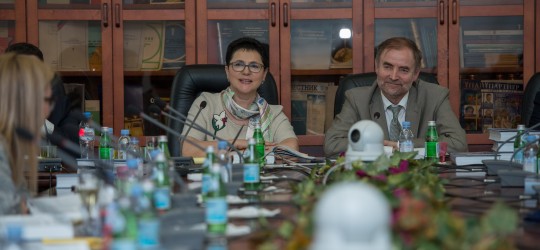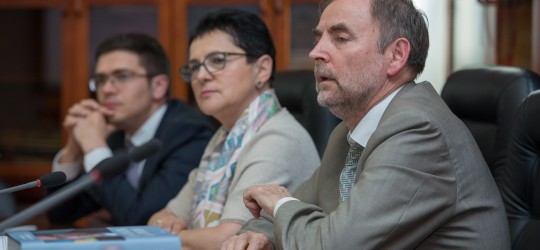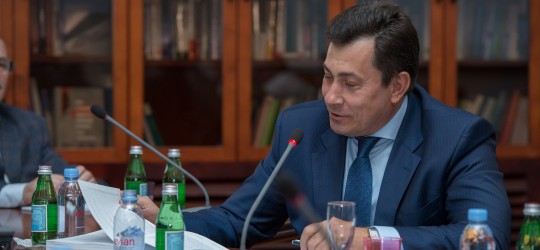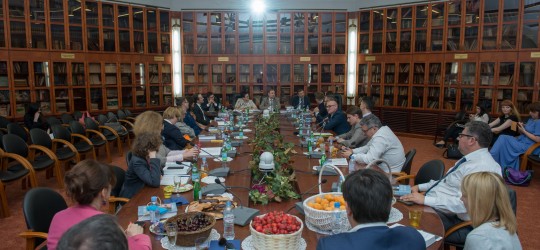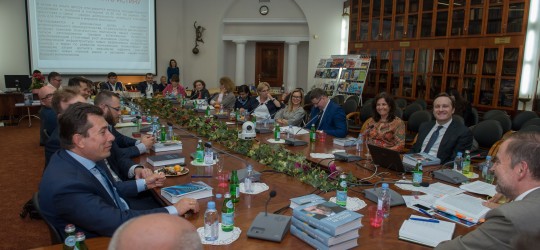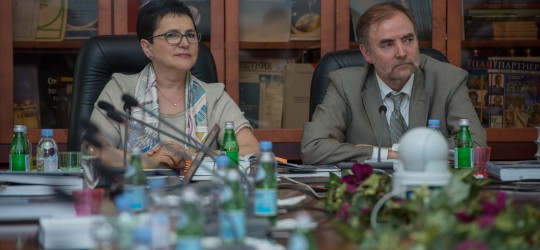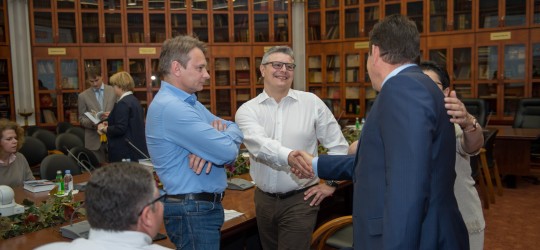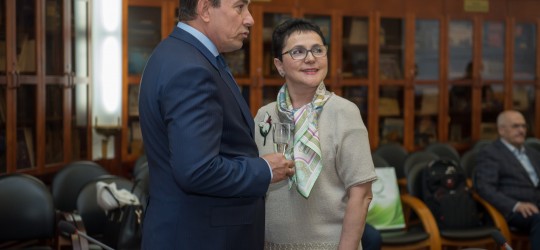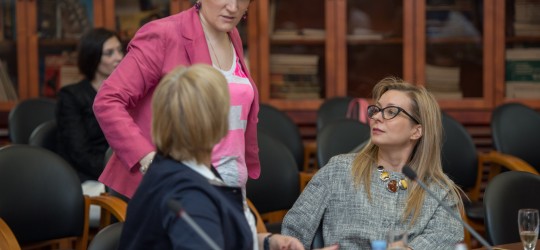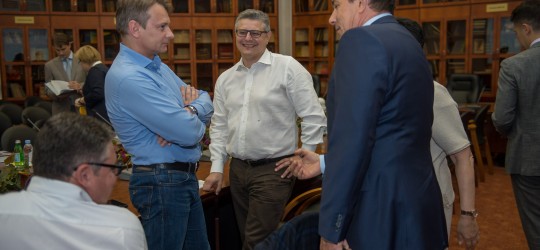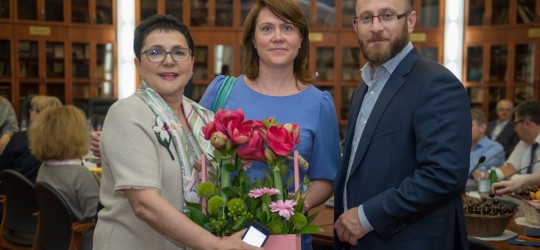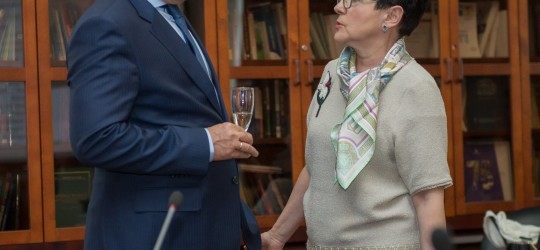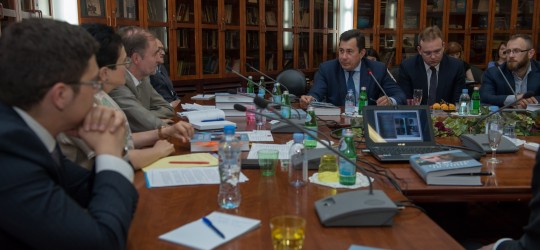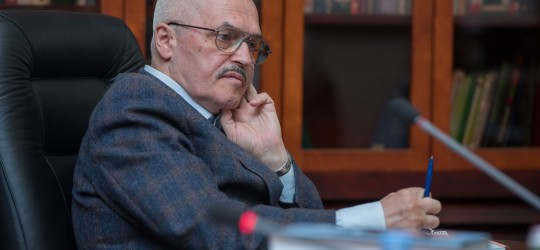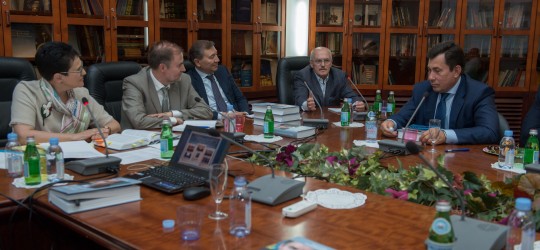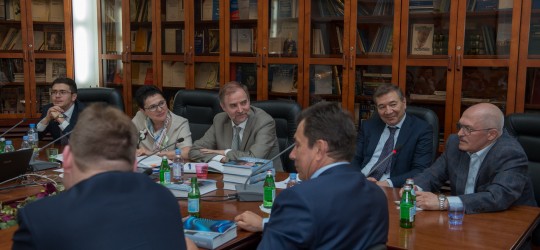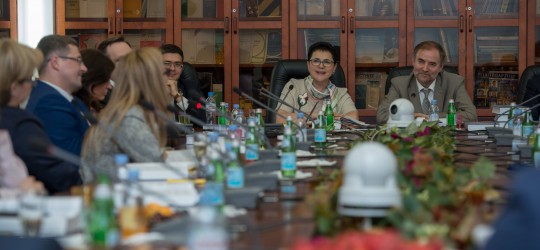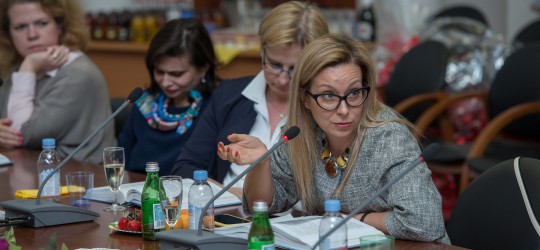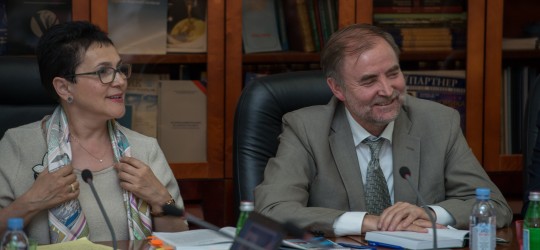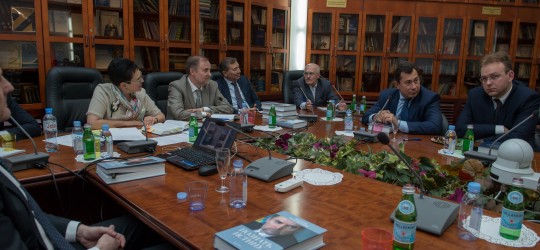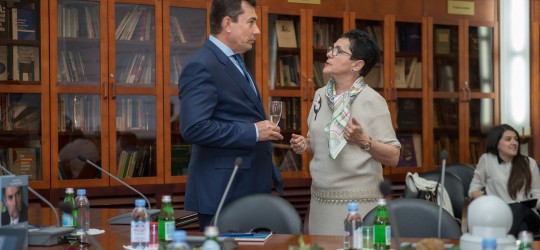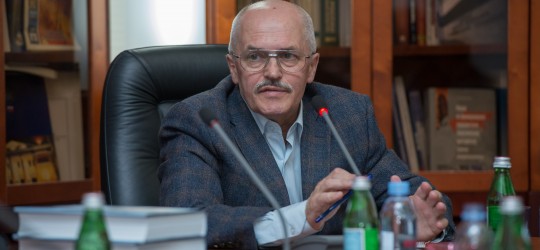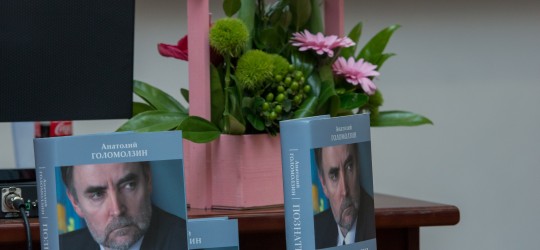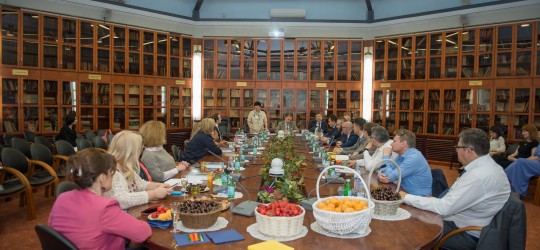Meeting of members of the Corporate Counsel Association with Anatoly Golomolzin
“There is a need in close intercommunications, without time limit, with dynamic, thinking people. Hopefully, the book will be fascinating for those who take interest, enlightening for those who excite the curiosity, and instructive for professionals, which means useful for our common benefit”, these are the words that end the author’s Preface to “Learn the Truth”. They sounded a good many times at the meeting of CCA members with the book author Anatoly Golomolzin on 20 June 2017 at the library of the Russian Chamber of Commerce and Industry.
The Corporate Counsel Association organized presentation of the book “Learn the Truth” by Anatoly Golomolzin, Deputy Head of FAS. Attendees included CCA members – top executives of law firms and chief legal officers of large Russian and international companies “Aeroflot”; “Gazprom Gazenergoset”; “Gazpromneft-centre”; “Karo Film Management”, “Megapolis”; “Megafon”; “MTS”; “Nike”, “Nestle”; “Polyus Gold”; “Rosatom”; “Rosstrakh Bank”; “Rostelecom”; “RTITS”; “RUSAL”; “Sberbank”; “SIBUR Holding”; “Siemens”; “SONY”; “Abbott”; “Enel”; “Universal Cargo Logistics Holding”; “Mediterranean Shipping Company” and others.
In the introductory remarks Alexandra Nesterenko, President of the Corporate Counsel Association, pointed out that the landmark book – and this is how “Learn the Truth” should be described, has struck home to her: “You’d like to revert back to the book again and again, it’s not one of those that you read and stick on its shelf”. Alexandra Nesterenko invited those present to share their impressions about the book and ask questions to the author. She had no doubt that “everyone find in this book food for thought, for the soul, for the heart”.
Anatoly Golomolzin thanked CCA and personally Ms. Alexandra Nesterenko for an opportunity to meet with readers: “The time is coming when dynamic and thinking people should get together and speak in a calm atmosphere. Constantly in the thick of things and concerns, rarely can we prescind, collect thoughts, philosophize, get a sense of what we do, where and how we live and share it with our close ones, relatives, friends, acquaintances and colleagues”.
Anatoly Golomolzin straight away specified that the book not an autobiography, and there are personalia, that have much better grounds to pretend for it. Due to a number of reasons he was not only a witness but a participant of large-scale transformations at the epoch breaking up, which sharpens perception of things existent. Descriptions in the book are important not because of the details of the lives of some people but understanding of their evident and not-evident bonds with life, culture and history of the big country. Talking about learning the truth, Anatoly Golomolzin said that he had abided by the legacy of Alexander Suvorov that “one can learn the truth only in public service”. The great Russian military commander also stated: “Vanity has never … ruled my deeds. I forgot myself where it was due to think about the common good”. The book talks about public service in the field of antimonopoly enforcement and standard-setting, and that such efforts have always been well-thought and designed to improve life.
Anatoly Golomolzin narrative was how the book was born and what it concerned about. It emerged out of the comments to the photographs from the family and official archives, academic publications, numerous interviews in mass media, and literary experiences. The book relates to philosophical and spiritual beginnings, the history of his home places and their connection with the history of the big country, partly on documentary sources, partly on the basis of real experience and, the most important – learning the truth at public service in the past and present. Seemingly unconnected things, and the question was whether put them together or publish in separate books. Different parts of the book may seem dissimilar, however, only at a first glance. Everywhere between them there is inherent affinity. You can be fruitful only understanding all aspects of life in their interconnections. The book talks about these complex issues comprehensibly and with obvious elegance. Deeper understanding is facilitated through references to philosophy, and sketches in verse and prose add an emotional touch.
According to the author, the book underwent several editions, and when writing it he had a possibility to discuss and share thoughts with friends, colleagues, and like-minded persons. Among them Anatoly Golomolzin named Gennady Gudkov, a merited FAS expert, a former Head of Nizhniy Novgorod OFAS, Deputy Chairman of the Regional Council of People’s Deputies (retired), and Nina Zhirkova, Director of “Boldino” State Literature Memorial and Nature Museum and Heritage Site of Alexander Pushkin. Anatoly Golomolzin also presented two of friends of his who took part in the presentation: Georgy Davydov, a holder of an advanced doctorate degree in economics, President of the National Transport Association, Editor-in-Chief of “Transport Information Bulletin” magazine, and Svyatoslav Bulatsky, a journalist and publisher, including this book. In the words of the author, he drew information about the events and material handling not only from books and work and life experience, but also from conversations with such people.
It is not a coincidence that to learn the truth the author turned to vivid experience of Russian philosophical thought. “One the one hand, Russian philosophical thought absorbed the best of the world philosophy, and on the other, it aims at human being, real economic life, at incorporating cognition in our “actions” in the real world, which gives a lot for simultaneously system-wide and pinpointed practical work. To these efforts, it is also important to comprehend the postulates of conservative liberalism – developing market relations that are supported by mental tenets. If it does not happen, one can get far beyond the boundaries of the opportunities given by the freedom of economic activity. Abstracted liberalism as well as abstracted socialism lead to such detrimental consequences, that were not expected initially”, pointed out Anatoly Golomolzin. “History exists, but they know practically nothing about it, and perhaps only because of this few people learn from history and history teaches then only few things. Meanwhile, when liberal ideas, the ideas of the rule of law and social reformism, combined with Russian culture, philosophy and mind were embodied in Russia, the country always made breakthroughs in its social-and-economic development”, believes Anatoly Golomolzin.
As one of numerous examples from the book, Anatoly Golomolzin told the audience about the proud history of his birthplace - Kyakhta-Troitskosavsk that for a couple of centuries was a major centre of Russian-Chinese trade. The town was founded by a many-sided personality and an outstanding public official Savva Vladislavich-Raguzinsky. Among other things, he, using the modern language, created commercial market infrastructure for regular tea trading by merchants, “building storehouses and leasing them to merchants, which augmented state interest”. Tea trade went through Kyakhta, bringing up to half all customs charges to the treasury. For nearly 150 years from the beginning of the XVIII c. Russia was the only country that was able to establish good-neighbourly relations and conduct trade with China, supplying not only to the entire Russia but also working on the global markets towards Europe and America.
“Unfortunately, history text-books do not discuss much about economic development and formation of market relations. Theywriteaboutwars, courtevents, assassinations, etc. In reality history is economic relations, the law that regulates such relations, the institutions that support them, the public service. As we feel about the system, so it will further develop. It is important how economic relations can be organized, and how men are given opportunity to fulfill themselves, raising it, as it was in history, for genuine merits, bestowing the means to give unforgettable services to Russia”, said Anatoly Golomolzin.
The most part of the author’s life has been devoted to the work with Russian antimonopoly bodies, and to a considerable extent the book focuses on this field. The antimonopoly bodies are the “upper crust” in the system of the authorities, one of the cornerstones in the law enforcement and economic government block. High-profile-cases and multi-billion fines are just a visible tip of work. To achieve economic growth, flexible tariff regulation, commercial infrastructure of new large-scale markets are essential as well as development of competition, enabling to generate the maximum effect at the minimum costs. It is also important that they know and respect you around the world, value mutually beneficial cooperation. The book outlines collaborative efforts in the CIS and EAEU space, under the frame of OECD, UNCTAD, BRICS, and so on.
Anatoly Golomolzin also pointed out that “today the concept of “officiary” has a negative colour, even when talking from bully pulpits. The work of a public servant can and must be constructive, it is a mandatory element of economic development, it is a frame, without which the state activity cannot be organized. At all times there were public servants that cardinally changed life to the better. The appropriate institutions are needed that force the old monopolies to “turn” and create conditions for emergence of new companies. There should be mechanisms for open interaction between the authorities and business in the common interests of economic development. There are examples of the work of the Market Council in the electric power industry; the Exchange Committee on the markets of primary commodities, including oil, petrochemicals, natural gas; mutual understanding is reached on the basic principles in IT, etc. It would be nice if they teach about it using positive examples. Unfortunately, they do not tell at universities what is the core of the work of public servants, what kind of goals they should set”.
Svyatoslav Bulatsky shared his impressions from reading the book with the audience: “The book is very interesting and useful, especially for public servants who make important decisions on economic development. The author did not confine himself to analyzing serious, far-reaching decisions and high-profile antimonopoly investigations. Instead, he brought together in a multidimensional ligature spiritual values, philosophical discourse, parallels of the past and the present, understanding of the verity and truth of life. The author argues with a well-known film director Andrey Konchlovsky, asserting the distinctness of Russians and defending the great place of Russia in the world history.
I’ve learned a lot of new things about the town of Kyakhta, relationships between Russia and China and also read with a profound interest some vividly described facts, collected from different sources, about a great process of Russian history – discovering and exploring Siberia. It was also of interest for me to read about the obstacles on the way of economic development, operations of syndicates and trusts crushing free competition and causing disastrous consequences, such as, for instance, coal hunger on the eve of WWI. These are the examples that are important to be aware of and understand today, boosting Russian economy. The history itself confirms special significance of antimonopoly regulation for economic development”.
Ruslan Ibragimov, Vice-President on Corporate and Legal Affairs, “MTS” PJSC also shared his views on the book: “It is very complex, are reading it is an effort. It seems to me that it is a good reflection of the author’s character, which also is not simple, as for every multi-sided personality. It is clear that that not much was edited; it is an authorly and a very personal book. It is also very polyphonic, has many genres, it contains philosophy, history, economics and law. I have noticed that you positively evaluate public servants and officialdom, show them from a different side. It is a novelty, and interesting to read about, and it allows better understanding of public servants”. Quoting the book, Ruslan Ibragimov illustrated interconnections between philosophical statement of reasons and achievements of the modern economic thoughts, important for the practice of economic development; present-day interpretations of political economy; basic concepts of real markets, such as oligopoly, collective institutions and much more. He also gave quotations on the role of the state in establishing markets in the modern economy, both in Russia and in Western countries. Ruslan Ibragimov drew attention to the “Affair without rejects” Chapter that focuses on the contemporary history of shaping telecommunications markets that has occurred against ongoing discussions between FAS and the Ministry of Communications. Finally, he advised everybody to read the book: “It will become easier for you to comprehend the philosophy and logic of the regulator”. Sergey Pereverzev, Director of Legal Department, “Megafon” PJSC, supported the colleague.
Elena Voinikas, a principal expert, coordinator of CCP expert team: "The book is a reflection of the author’s personality - it is a complex, multi-level and multi-aspect, as the author, but at the same time it is absolutely integral. The author’s verses about human being and life, philosophy and history, work and love blend seamlessly in the text. Reading the book, I contemplated the verses that concisely, aphoristically expressed the essence of the Russian character and life journey: “Our strength, our fate – memory, faith, truth and will”. Siberian-Urals roots are a “fusion of will and faith” and history requires not just memory from us but also acts of will and, according to Nikolas Fyodorov’s philosophy, is projective. Interestingly, Anatoly Golomolzin has been able to show how abstract philosophical and academic ideas find application in the everyday life. Here is an example from the book. In the past ten years the number of cases on violating the antimonopoly law on the oil products and telecommunications markets has dropped down manifold and today does not exceed 20 per year. It is important that the reason for the positive changes is not natural evolution, the so-called “invisible hand of the market” but structural reforms, well-designed, long-term antimonopoly policy that the author has been shaping and implementing together with his colleagues. Thus, Anatoly Golomolzin showed that “active knowledge” by Nikolas Fyodorov is what everyone from us does when means the future and aspires to change something in this world”.
Alexei Nikiforov, Legal Support Director, “SIBUR” Group, also outlined his views after reading the book: “The book definitely is not formal, without bureaucratic language, it is written from the first-person prospective, an analyst directly involved in large-scale transformation of the economy. There are few examples when statesmen of such a level and with huge experience write similar books. It gives a chance to better comprehend the state machinery and the decision-making logic of today. It was also interesting to read about the problem of entrepreneurship, with which the society does not have the most pleasant associations. The points made in the book remarkably combine the values of public service and entrepreneurship”. Alexei Nikiforov emphasized FAS competition advocacy efforts: “In business we have formed a common opinion that if other specialized bodies would advocate their laws as openly as FAS, we would now be on a completely different level of regulation”. In conclusion he underlined that the book is full of spiritual and historic content, and the author also sends a message how to be a proper citizen and a leader.
Vera Kolesnik, Head of Legal Department, “Nestle”, highlighted that the book is a wonderful combination of philosophical, economic and legal thought. “The book posed a question to me how to bring up the future generation, how to avoid dictatorship of a single position in Russia, etc. It was not only interesting for me to see the author’s recollections, his personal emotional discoveries, but it was also useful to get familiar with the book from a professional point of view. It answered numerous questions related to antimonopoly regulation, for instance, in the field of the electric power industry”, said Vera Kolesnik.
Georgy Davydov, mentioned how humanization of public service is manifested in the book, and how human destiny and public service are interrelated. He drew attention to the author’s passion for history, his ability to see analogies and parallels of past and present events. Georgy Davydov emphasized that “the book is clearly didactical. Everybody needs bringing up, especially young generations, schoolchildren, students, newcomer public servants. And Anatoly Golomolzin does it organically; his book teaches the readers through art and literature devices. He showed, where creeds, principles, patriotism, loyalty to one’s filed of work come from. Thebookisapublicservicedramaturgy. Unassumingly, without any dogmatism and simplification, it reveals how the work of government officials stumbles upon various interests, explicit and implicit influences, frames and contradictions, and how it is possible to overcome this, establish social interactions, shift from chaos to regularity”.
A principal lawyer of “Russian Post” Alexander Pavlov gave a striking review after reading the book: surprise – pleasure – joy – hope. Surprise because you have known the author for a long time as a specialist and top-level official, and do not expect that he has something to say in terms of philosophical and historic insight, not to mention deep understanding of complex economic processes. Pleasure because it is read with interest, even when you want to argue. Joy from an involvement with a multisided talent. Hope that the book will help people see them in a new way, think over their past, present and future. The value of this book is that it can be of a particular interest for everyone. For Alexander Pavlov, for instance, it is interesting due to its braiding of history and economy, philosophy and practice, the interests of the state and business, life and traditions of a particular family and the state in general.
Nobody in the audience remained indifferent, everybody were keen to take part in the discussion. Summing up, Anatoly Golomolzin thanked the participants for the meaningful conversation and signed copies of his book for the readers.








